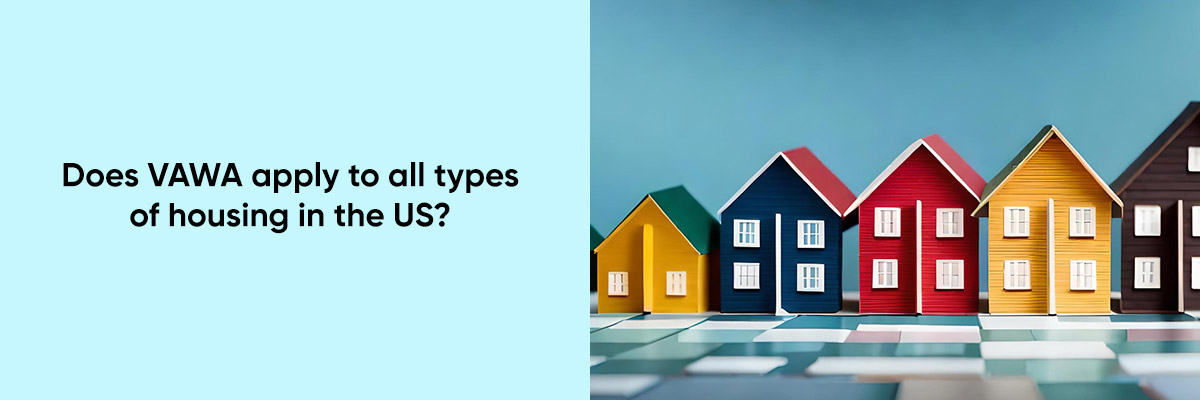As a pivotal piece of legislation enacted in 1994, the Violence Against Women Act (VAWA) has played a critical role in addressing and combating gender-based violence in the United States. There are many provisions in VAWA that provide important protections for victims, particularly in the context of fair housing.
In this blog, we will examine the intricate details of VAWA and determine whether it applies to various housing types across the country.
Understanding VAWA:
Under VAWA, domestic violence survivors, survivors of sexual assault, survivors of dating violence, and survivors of stalking are all protected, which is a multifaceted legislative framework. While its main goal is to provide comprehensive support for victims, it specifically addresses housing discrimination and eviction, ensuring that survivors are not penalized for their situation.
Applicability to Different Housing Types:
If you ask, does VAWA apply to all types of housing? No, it doesn’t apply to private housing. Essentially, VAWA covers federally subsidized housing programs, such as public housing, Section 8, 202, 811, housing opportunities for persons with aids, etc. so, in short, VAWA applies to all the programs that receive federal funding, to ensure the protection of survivors.
However, if you have faced domestic violence or dating violence then you can approach an attorney to help you out and suggest the measures that you can take to get housing assistance.



Key Protections Afforded by VAWA:
VAWA provides a comprehensive set of protections for victims of domestic violence, sexual assault, dating violence, and stalking within the realm of housing. These key protections include:
- Emergency Transfers: With VAWA, survivors can be transferred to a different unit in case of an abusive environment, in order to escape a potentially dangerous environment. The provision takes into account the potential retraumatization that survivors may experience if forced to stay in an environment where they have endured abuse.
- Confidentiality: Housing providers are mandated to maintain strict confidentiality regarding the survivor’s information to shield them from potential retaliation by the abuser. Also, the information can only be shared with written approval from the victim for legal purposes.
- Eviction Prevention: Victims of domestic violence, dating violence, sexual assault, or stalking cannot be evicted solely because of their status as victims. VAWA addresses power imbalances present in abusive relationships by preventing eviction solely based on victim status. When survivors are assured that seeking assistance will not result in homelessness or further instability, they are more likely to seek assistance and break free from abusive situations.
- Notification Rights: Housing providers are not only required to inform tenants about their rights but also about the available resources and support services. This may include local domestic violence shelters, counseling services, legal assistance, and other community resources that can aid survivors in their journey to safety and recovery.
Final Words:
The protective umbrella of VAWA spans various housing types in the United States. Whether in federally subsidized housing programs or private housing with federal financial assistance, survivors of gender-based violence are entitled to essential safeguards. As we strive to raise awareness about these issues, it becomes imperative for both tenants and landlords to comprehend and uphold the provisions of VAWA, thereby contributing to the creation of safe and supportive environments for survivors seeking refuge and recovery.


